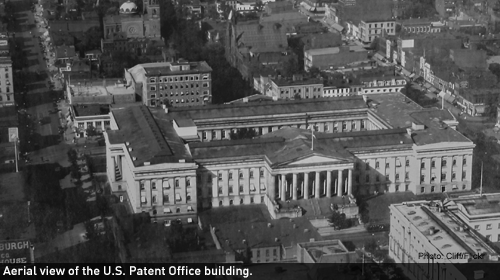
Last April, during the Supreme Court oral arguments in our case challenging patents on human genes, Justice Kagan remarked, "The PTO seems very patent happy." Her comment, and the unanimous decision invalidating gene patents, clearly expressed the court's concern that the Patent Office is overstepping its authority by approving patents that thwart, rather than foster, scientific inquiry and progress.
The Supreme Court will soon re-visit whether the Patent Office has gone too far in granting exclusive rights to what should properly remain in the commons. In the next few months, it will rule in Alice Corp. Pty. Ltd. v. CLS Bank International, a software patent case that completely divided the U.S. Court of Appeals for the Federal Circuit and is sparking controversy in the tech world. Alice follows three recent decisions – with the gene patents case being the last – issued by the court reaffirming the longstanding principle that the Patent Act does not permit patents on products of nature, laws of nature, and abstract ideas. Patents on abstract ideas are especially likely to raise First Amendment problems, as the First Amendment protects freedom of speech and thought.
The case involves patents on a method for addressing the risk that one party might back out of a deal after the other one has already paid. You can read about the details of the patents here, but the steps of Alice's patented method essentially call for a third party to keep track of financial transactions between two parties and then to instruct another institution to adjust the two parties' accounts accordingly at the end of the day. It's simple enough to imagine carrying out this process using pencil and paper to add up the transactions and a phone to communicate the account adjustment, but Alice's patents claim any computer implementation of this process. That means Alice has a monopoly on any software or hardware that performs this way of using a third party to address settlement risk, even when Alice has not created the programming code or designed the computer that has this capability.
The district court invalidated Alice's patents under Section 101 of the Patent Act, concluding that Alice is seeking to patent the abstract idea of escrow. The court found that using a third party to guarantee a transaction is a basic business concept that cannot be monopolized. The fact that this was done through a computer did not give rise to an invention, because Alice did not want to patent specific software program or hardware, but any and all software and hardware that could execute the method.
When the case reached the Federal Circuit, the ten judges were split, issuing six separate opinions. The rift within the Federal Circuit is deeply problematic, as the court decides all patent appeals from across the country. Continued confusion at the Federal Circuit about whether an abstract idea can be patented will result in a plethora of patents that impede companies, researchers, and others from using fundamental intellectual concepts to create new products and services.
Today, the ACLU filed an amicus brief in Alice Corp. arguing that the prohibition on patenting abstract ideas must be enforced, because it is compelled by the Constitution. The Patent Office and courts generally have not addressed the effect of the Constitution on patent regulation. But the government's authority to issue patents, like all government action, is subject to constitutional limits. Copyright law has integrated First Amendment protections in several ways – for example, by distinguishing between ideas and expression. Disallowing patents on abstract ideas plays the same role, by protecting freedom of thought as guaranteed under the First Amendment. Because Alice's patents claim an abstract intellectual concept, they constrain and control how others can think about and build on that concept – including those developing new software. This is particularly troubling because programming code can itself be speech deserving of protection under the First Amendment.
The barriers to innovation presented by this type of patent fly in the face of the constitutional mandate, found in Article I, requiring patents to "promote the progress of science." That's why many of the major tech companies – including Google, Dell, Facebook, and Twitter – filed amicus briefs in the Federal Circuit arguing that Alice's patents, and others like them, stand in the way of advancement in the high-tech sector.
Patents can serve an important role as incentives for invention. But the government cannot use patent law to grant monopolies on abstract knowledge, thought, and speech without violating the Constitution. If including computer implementation in a patent automatically turns an abstract idea into an invention, then almost any idea that can be expressed in programming code could be patented and controlled. The Constitution does not allow that kind of intrusion on freedom of thought.
